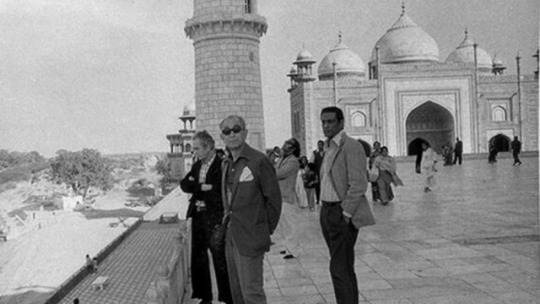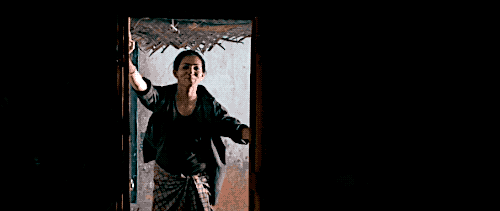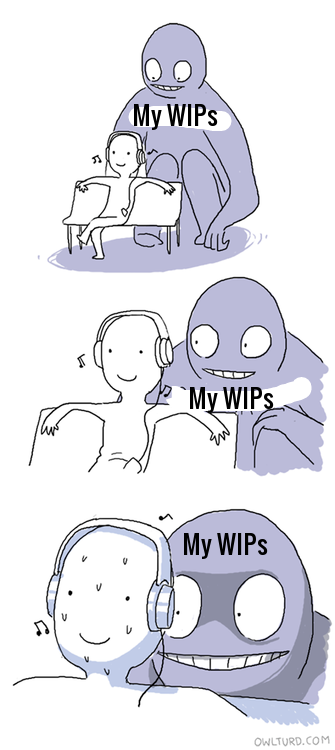Don't wanna be here? Send us removal request.
Text
‘Curry Westerns’ of Down South

During the late 60s when Sergio Leone moved the stage of ‘Western cowboy movies from the American studios to post-world war Italy, filmmakers across the globe fell in love and contextualized the theme to their culture. In the parallel world of South India, there were some ambitious directors like M.Karnan, largely inspired by the theme’s imagery and plots of these ‘Spaghetti Westerns’ went on to attempt some of the earliest cowboy movies in India. He almost had his ‘Dollar Trilogy’ with his initial directorial flicks like ‘Kaalam Vellum’, ‘Ganga’ and ‘Jakkamma’ featuring the venturesome actor Jaishankar performing a Clint Eastwood.
When these flicks were telecasted on TV the late 90s during kaviya budhan and Athiradi Viyazhan, it was Kafkaesque to watch the South Indian cowboys’ pursuit on their horseback clad in ponchos, spur, boots and wielding guns to avenge the badass bandits and feudal landlords for their heinous crimes in an otherwise peaceful caste-discriminating south Indian village. For the want or replicating the arid desolated landscape the cinematographer-director Karnan, chose hills near Salem and Trisulam in Madras to picture his iconic the wide-angle (fish eye) shots to give a visual magnanimity.
Usually, the storylines remained predictable and there were noticeable flaws in terms of transition and continuity, which Karnan himself calls ‘continuity of convenience’. However, these movies were blockbusters not just because of their outdoor action blocks and shootout sequences but the director contextualized the genre to the Tamil society that was at the intersection of social reforms. He also must have had a fair understanding of the tropes with which ‘Westerns’ revolved like, revenge and retribution, damsel-in-distress, freedom over the rightful land, he created cowboy heroes who were vocal in calling out for an open rebellion against the persecutors. Needless to mention the dialogues were primed with propaganda and spoken looking straight at the camera. M.Karnan made more than a dozen movies in the next few years till he ran out of gas.
When ‘Sholay’(1975), a movie largely inspired by western, was released in India, it was a pan India blockbuster. To sum up, it was a ‘Django Chained’movie that gave birth to a ‘Sholay’ formula that lasted few movies. Also, the late 70s were the time when the genre faded away across the globe with the arrival of computer graphics. The worlds came together and many new genres born but this is one genre that has a tendency to pervade other genres and other cultures. From Sergio Leone to M.Karnan, this is real contagion.
4 notes
·
View notes
Text
“Gabriel Garcia Marquez’s Last Words Gabriel Garcia Marquez wrote these last words just before he died in Mexico City in April of 2014. (Translated from the original in Spanish by Andrés Berger-Kiss) If for an instant God would forget I’m a rag puppet and would give me a bit more life, I would take advantage of that time as much as I could. Possibly I would not tell everything I think, but I would definitely think about everything I say. I would value things, not for what they’re worth, but for what they signify. I would sleep a little, I would dream more. I understand that for every minute we spend with our eyes closed, we lose sixty seconds of light. I would walk when others stop, awaken when others sleep. If God would give me a bit more life, I would dress simply, would throw myself downward on my stomach under the sun, leaving uncovered not only my body but my soul. I would tell men how wrong they are thinking they can’t fall in love when they are old, not knowing that they grow old when they stop loving. To a child I would give wings, but would leave him or her alone to learn to fly. To the old ones I would teach them that death doesn’t arrive when one is old, but when one forgets how to live. So many things I have learned from you, humanity……I have learned that the whole world wants to live at the top of the mountain, not knowing that true happiness is found upon climbing the rugged hill. I have learned that when the newborn squeezes with its small fist the first time, the father’s trapped finger will be forever his. I have learned that a man has the right to look down upon another only when he wants to help him get up. So many are the things I have learned from you, but they will not serve me much, because when they will keep me in that bag, unhappily, I will be dying. Try to always say what you feel and always do what you think in the profoundest part of your hear. If I knew that today is the last time I will see you asleep, I would give you a strong embrace and pray to God to let me be the guardian of your soul. If I knew that these are the last moments I can see you, I would say to you “I love you” and not foolishly assume you already know that. There is always a tomorrow and life always gives us another opportunity to do things well, but if I’m mistaken and today is all that remains for us, I’d like to tell you how much I love you, and that I never will forget you. Tomorrow is not assured for anyone, young or old. Today may be the last time you’ll see those you love. That’s why you should not wait any longer, do it today, so that if tomorrow never arrives, surely you’ll lament the day when you didn’t take the time for a smile, an embrace, a kiss because you were too busy to bestow one last wish. Keep those you love close to you, whisper in their ears how much you need them, love them, and treat them well, take time to say to them, “I’m sorry”, “forgive me”, “please”, “thank you” and all the loving words you know. No one will remember you for your secret thoughts. Ask the Lord for the strength and knowledge to express them. Finally, show your friends and loved ones how much you care for them.”
— —Gabriel García Marquez
503 notes
·
View notes
Text
the conversation has to be as good as the sex
163K notes
·
View notes
Text
“By all means let’s be open-minded, but not so open-minded that our brains drop out.”
— Richard Dawkins
3K notes
·
View notes
Text
“I began to draw an invisible boundary between myself and other people. No matter who I was dealing with. I maintained a set distance, carefully monitoring the person’s attitude so that they wouldn’t get any closer. I didn’t easily swallow what other people told me. My only passions were books and music.”
— Sputnik Sweetheart
2K notes
·
View notes
Photo

A forever favorite photo: Michelangelo Antonioni, Akira Kurosawa, and Satyajit Ray at the Taj Mahal in 1977.
699 notes
·
View notes
Photo









“The Man with No Name” phone backgrounds (16:9)
2K notes
·
View notes
Photo


Aishwarya Rai in Kandukondain Kandukondain (2000)
2K notes
·
View notes
Text
“Writing novels, to me, is basically a kind of manual labor. Writing itself is mental labor, but finishing an entire book is closer to manual labor. It doesn’t involve heavy lifting, running fast, or leaping high. Most people, though, only see the surface reality of writing and think of writers as involved in quiet, intellectual work done in their study. If you have the strength to lift a coffee cup, they figure, you can write a novel. But once you try your hand at it, you soon find that it isn’t as peaceful a job as it seems. The whole process—sitting at your desk, focusing your mind like a laser beam, imagining something out of a blank horizon, creating a story, selecting the right words, one by one, keeping the whole flow of the story on track—requires far more energy, over a long period, than most people ever imagine. You might not move your body around, but there’s grueling, dynamic labor going on inside you. Everybody uses their mind when they think. But a writer puts on an outfit called narrative and thinks with his entire being; and for the novelist that process requires putting into play all your physical reserve, often to the point of overexertion.”
—
Haruki Murakami (What I Talk About When I Talk About Running)

2K notes
·
View notes
Photo



Parvathy and Dhanush in Innum Konjam Naeram from Maryan (Tamil, 2013)
28 notes
·
View notes
Photo






Water in The Life of Ram from 96 (Tamil, 2018)
13 notes
·
View notes
Text
“…and from his pain he knew he was not dead.”
— “The Old Man and the Sea” by Ernest Hemingway
106 notes
·
View notes










